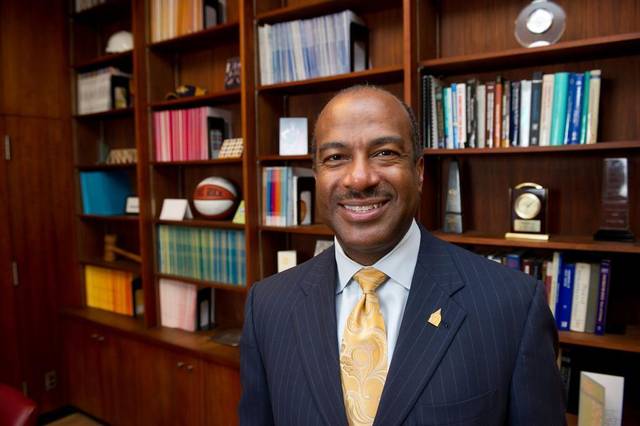After a scandalous reveal of the many side jobs of former UC Davis Chancellor Linda Katehi, one could only assume that her replacement would not be involved in such controversial activities. It seems, however, that that would be asking for too much of the Board of Regents. Her replacement, Gary May, makes over $300,000 a year from sitting on outside boards, which raises several questions as to where a line should be drawn regarding the amount of moonlighting a chancellor is allowed to do.
Some might claim that, in fact, May’s involvement on these boards is more acceptable than Katehi’s, citing that the companies he is involved with do not directly profit off of students. After all, it was Katehi’s board position at a for-profit university that added an ethical dilemma to the concern that she may be spread too thin. This argument in favor of outside involvement being acceptable as long as it remains separate from university affairs, however, disregards the potential for any given company or operation’s success to eventually impede or otherwise affect the University of California. Ultimately, any position taken alongside serving as chancellor poses the potential for a conflict of interest.
After last year’s fiasco, the Board of Regents attempted to limit the number of boards that UC administrators could belong to and set forth other such regulations. These measures include limiting the number of outside boards to two and requiring Regent approval for any new roles the administrators undertake, but despite passing these regulations, there was no solid condemnation of UC chancellors’ outside positions. UC President Janet Napolitano went as far as to state that these involvements, when done right, can be beneficial to the university. Her approval of such involvement should come as no surprise as she has served on several boards — namely, the previously named American Legacy Foundation— which she defended by claiming that her lack of compensation demonstrated her commitment to the university. Failing to acknowledge the detriments to proper performance of a chancellor’s role that could be brought by positions outside serving as chancellor is harmful, as it makes these regulations seem like a reaction to public upheaval, rather than a legitimate concern for the university’s well-being.
Our own UC chancellor has seven outside positions, on which which he claims to spend less than two days worth of time per year. Though he describes his involvement in them as minimal, it certainly bears the question, how much is too much? According to the new UC Regents regulation, the fact that only two of those seven positions are on a board means that it is not a cause for concern. That fact alone should reveal what is wrong with the regulations that were supposed to fix what was amiss. Many who serve as UC Regents — the entity in charge of determining limits on outside involvement — also belong to outside boards and private enterprises, making their level of objectivity dubious at best. The current Chair of the Regents Board, Monica Lozano, serves as independent director for Bank of America and director for the Target Corporation. It’s worth considering whether or not this poses a conflict of interest in the very function of the Board to decide upon regulation.
Issues with the appointment of May raise the larger question of what makes for an effective chancellor. The head of a research institution with 35,821 students has no need for a second, third, much less seventh job, and the lack of transparency in what UC administrators make — and what they are involved with — leaves more questions than answers. If one were to ask any given undergraduate student what the chancellor does, or maybe even what he looks like, the amount of blank stares and blanket statements would probably astonish anyone who doesn’t know that UC administrators are allowed to have so many side-gigs. Perhaps instead of looking for other jobs and positions of influence in private and even not-for profit boards, the chancellors of the UC system should focus on getting to know the population of students that pay their salary and their homes and the myriad of perks they receive for their position.








